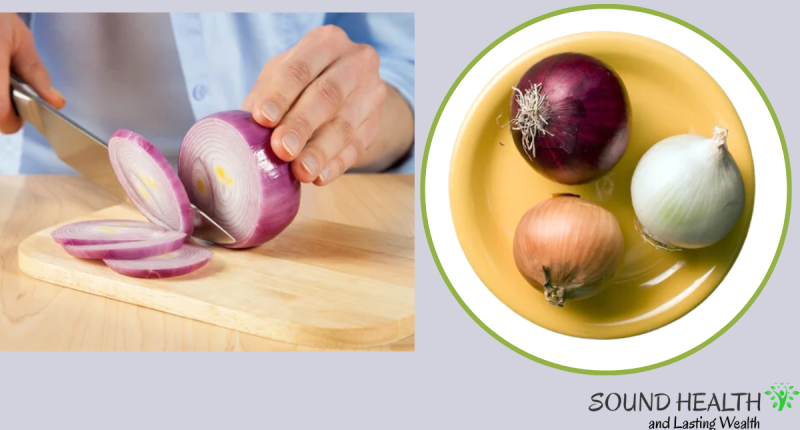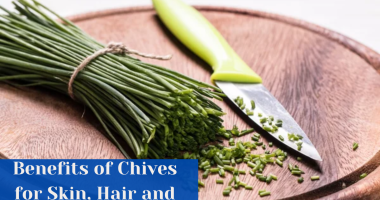Onions are a common household staple crop grown in over 170 countries, and their benefits extend far beyond the kitchen. One onion is packed with vitamins, minerals, and antioxidants, onions offer a surprising range of benefits for your skin, hair, and eyes.
What is Onion?
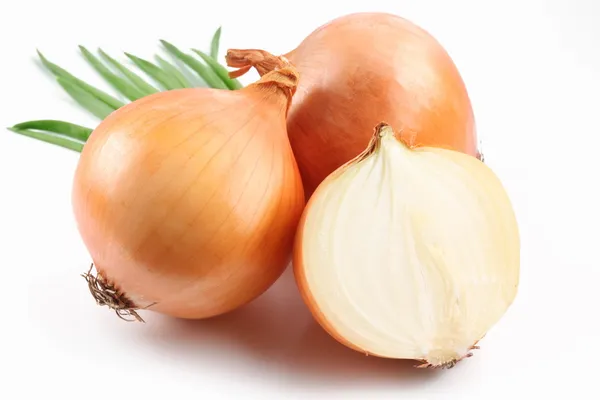
An onion, also known as the bulb onion or common onion, is a vegetable that is the most widely cultivated species of the genus Allium. It is a biennial plant, meaning it completes its life cycle in two years.
Here are some key characteristics of an onion:
- Scientific Name: Allium cepa L.
- Family: Amaryllidaceae (same family as garlic, chives, and leeks)
- Origin: Central Asia, cultivated for over 5000 years
- Description: Bulb-shaped vegetable with fleshy, concentric layers enclosed by a papery skin
- Types: Globe onions (yellow, white, red), sweet onions, shallots, scallions (green onions), spring onions
- Culinary Uses: Raw, cooked, fried, roasted, pickled, caramelized, salads, soups, stews, sandwiches, French onion soup, onion rings
- Medicinal Properties: Rich in vitamins, minerals, and antioxidants, boosts immune system, reduces inflammation, lowers blood pressure, aids digestion, improves heart health, may prevent cancer.
NOTE:
- The pungent aroma of onions comes from sulfur compounds released when the bulb is cut or crushed.
- Onions absorb moisture and odors, so they should be stored in a cool, dry, well-ventilated place.
- Onions can last for several months when stored properly.
- Onions are a good source of fiber, which is important for digestive health.
DON’T MISS: Fresh Leek: Nutrition Facts Health Benefits, and Recipes
Here are some facts about onions
Facts about Onions
| Fact | Description |
|---|---|
| Origin | Central Asia |
| Cultivated for | Over 5,000 years |
| Family | Amaryllidaceae |
| Scientific Name | Allium cepa L. |
| Number of Varieties | Over 300 |
| Common Types | Globe (yellow, white, red), sweet, shallots, scallions, spring onions |
| Taste | Pungent, sweet, mild |
| Aroma | Pungent, distinctive |
| Tear-producing effect | Caused by sulfur compounds released when cut |
| Culinary Uses | Raw, cooked, fried, roasted, pickled, caramelized |
| Nutritional Value | Rich in vitamins (C, B6), minerals (potassium), and antioxidants (quercetin) |
| Health Benefits | Boosts immune system, reduces inflammation, aids digestion, lowers blood pressure, potential anti-cancer properties |
| Global Production | Over 100 million tons annually |
| Largest Producers | China, India, United States |
| Interesting Uses | Natural dyes, folk remedies, symbolism |
| Sustainability | Low-maintenance crop, minimal water and resources required |
| Future | Development of new varieties with improved disease resistance, longer shelf life, and sweeter flavor |
Botanical Description:
The onion (Allium cepa) belongs to the Amaryllis family, alongside garlic and chives. It is a biennial plant, meaning it completes its life cycle in two years. The first year sees the development of the bulb, which stores nutrients for the second year’s flowering. The bulb is composed of fleshy, concentric layers enclosed by a papery skin.
Types and Varieties
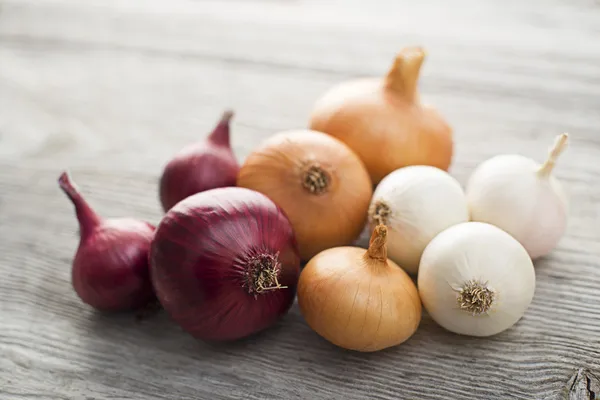
The onion family is surprisingly diverse, offering a variety of flavors and appearances. Here are some of the most common types:
- Globe onions: These are the most common type of onion, known for their spherical shape and strong flavor. Yellow onions are the most popular variety, with a sharp bite perfect for cooking. White onions are milder and sweeter, ideal for salads and sandwiches. Red onions add a vibrant pop of color and a slightly sweet, peppery flavor to dishes.
- Sweet onions: These onions are milder and sweeter than their globe counterparts, making them perfect for raw consumption. Popular varieties include Vidalia, Walla Walla, and Maui onions.
- Shallots: These small, elongated onions have a delicate onion flavor with a hint of garlic. They are often used in French and Asian cuisine.
- Scallions (green onions): These young onions are eaten green and have a mild onion flavor. They are often used as a garnish or in stir-fries.
- Spring onions: Similar to scallions but with a larger bulb and a slightly stronger flavor.
As earlier mentioned, the benefits of onions are numerous and we will specifically discuss how eating onions either in raw form or from your meals or diets can impact our skin, hair, and eyes positively.
Onion Benefits for Skin
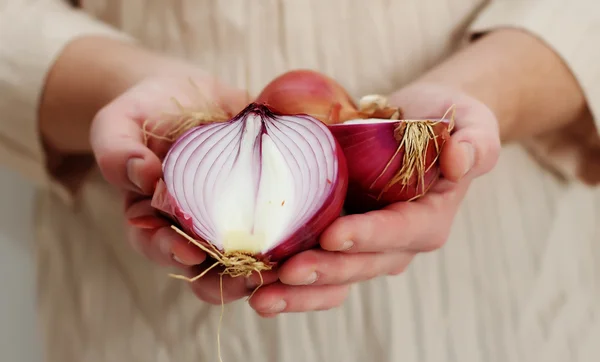
1. Fights Inflammation
One of the most significant contributions of onions to skin health is their anti-inflammatory prowess. This attribute stems from the presence of quercetin, a powerful antioxidant. By combating inflammation and swelling, quercetin can effectively minimize the appearance of scars and promote faster wound healing. This makes onions a valuable tool for individuals struggling with acne scarring or other inflammatory skin conditions.
2. Protect Against Bacterial Attack
Another noteworthy benefit of onions lies in their antibacterial properties. The sulfur present in these versatile bulbs acts as a natural antiseptic, effectively inhibiting the growth of bacteria that can lead to blemishes and irritation. This makes onions particularly beneficial for those prone to acne breakouts and other bacterial skin infections.
3. Promotes Radiant Complexion
Onions are brimming with vitamin C and sulfur, two powerful allies in the battle against hyperpigmentation. Vitamin C plays a crucial role in brightening your skin tone by inhibiting the production of melanin, the pigment responsible for dark spots. Sulfur, on the other hand, gently exfoliates dead skin cells, revealing a brighter, more even-toned complexion.
4. Rich in Exfoliating Properties
The exfoliating properties of onions, primarily attributed to their sulfur content, offer an invaluable benefit for achieving a smoother, more radiant skin. By removing dead skin cells, onions promote healthy cell turnover, leading to a refreshed and revitalized appearance. This can be especially helpful for individuals with dry, flaky skin or those seeking a more even application of makeup.
5. Fights Against Premature Aging
As we age, our natural collagen production declines, leading to the appearance of wrinkles and fine lines. However, onions offer a natural solution to combat this issue. Their sulfur content is essential for the production of collagen, the protein responsible for maintaining skin’s structure and elasticity. By boosting collagen production, onions can help reduce the appearance of wrinkles and fine lines, promoting a youthful and vibrant look.
6. Shields Your Skin from the Sun’s Wrath
The antioxidant power of onions extends to protecting your skin from the harmful effects of ultraviolet (UV) rays. Onions are rich in vitamins A, E, and C, which act as powerful antioxidants, shielding your skin from sun damage, sunburn, and even skin cancer. This makes onions a valuable addition to your skincare routine, especially during those long summer days.
Harnessing the Power of Onions for Skin
Now that we have unveiled the hidden treasures of onions for skin, let’s explore some practical ways to incorporate them into your skincare routine:
- Direct Application: Apply raw onion juice directly to your skin, leave it on for 15 minutes, and then rinse it off with lukewarm water. This is a simple and effective way to benefit from the anti-inflammatory and exfoliating properties of onions.
- Onion Face Mask: For a more intensive treatment, prepare an onion face mask by mixing grated onion with honey or yogurt. Honey offers additional moisturizing benefits, while yogurt provides a soothing effect. Apply the mask to your face and neck, leave it on for 15-20 minutes, and then wash it off with lukewarm water.
- Relaxing Bath Soak: Add onion juice to your bathwater to enjoy its anti-inflammatory and soothing properties. This is a particularly relaxing way to relieve muscle tension and promote a sense of calm, especially after a long day.
- Reaping Internal Benefits: While topical application offers significant benefits, don’t underestimate the power of consuming onions regularly. Including them in your diet ensures you reap the internal benefits of their vitamins, minerals, and antioxidants, ultimately contributing to healthier skin from within.
Remember, consistency is key to achieving optimal results. Incorporate these onion-based remedies into your skincare routine regularly and witness the transformation of your skin towards a brighter, smoother, and more radiant state. However, it’s important to note that some individuals may experience skin sensitivity to raw onion juice. Always conduct a patch test on a small area of your skin before applying it to your face or neck. If any discomfort arises, discontinue use immediately.
Onion Benefits for Hair

1. Supports Hair Growth
Onions are rich in sulfur, a crucial mineral for hair growth. Sulfur strengthens hair follicles, stimulates new hair growth, and increases hair thickness. It also plays a role in keratin production, the protein that forms the building block of hair, making it stronger and healthier.
2. Fights Hair Loss
The anti-inflammatory properties of onions, particularly the antioxidant quercetin, can help combat hair loss. It reduces inflammation in the scalp, which can be a contributing factor to hair loss conditions like alopecia. Additionally, the antimicrobial properties of onions help fight scalp infections that can also lead to hair loss.
3. Dandruff Defense
Onions possess natural antifungal and antibacterial properties, making them an effective weapon against dandruff. These properties help combat the Malassezia fungus, the primary cause of dandruff, and prevent its recurrence.
4. Scalp Soothing Savior
The sulfur in onions acts as a natural exfoliant, removing dead skin cells and promoting scalp health. This can relieve itching and irritation caused by dandruff or other scalp conditions. Additionally, the anti-inflammatory properties of onions further soothe the scalp, providing relief from discomfort.
5. Can be Good for Conditioning
Onion juice is rich in nutrients and vitamins, including vitamins A, C, and E, which nourish hair follicles and promote healthy hair growth. These vitamins also add shine and luster to hair, leaving it looking healthy and vibrant.
6. Natural Hair Color Enhancer
Onion juice, particularly from red onions, can naturally enhance hair color. The pigments in red onions can add subtle auburn or reddish tones to hair, especially when used regularly.
Ways to Incorporate Onions into Your Hair Care Routine:
- Onion juice hair mask: Blend onions into a juice and apply it directly to your scalp and hair. Leave it on for 30 minutes before washing it off with a mild shampoo.
- Onion hair rinse: After shampooing, dilute onion juice with water and use it as a final rinse. This helps leave hair feeling softer and shinier.
- Scalp massage with onion oil: Combine onion juice with a carrier oil like coconut oil or jojoba oil and massage it into your scalp. Leave it on for 30 minutes before washing it off.
Important Note:
While onions offer various benefits for hair, it’s important to do a patch test before applying them directly to your scalp. Some people may experience scalp irritation due to the potent nature of onions. If you experience any discomfort, discontinue use immediately.
Onion Benefits for Eyes

While onions might bring tears to your eyes in the kitchen, their hidden potential for promoting healthy vision might surprise you. This ubiquitous vegetable harbors a unique blend of nutrients and compounds that offer a surprising range of benefits for maintaining optimal eye health. Let’s delve deeper into the fascinating ways onions can protect your precious vision:
1. Cataract Combatant
Onions are a rich source of selenium, a crucial mineral that plays a vital role in the production of vitamin E. This antioxidant duo acts as a shield against cataract formation, a clouding of the eye’s lens that can impair vision. By protecting the lens from oxidative damage caused by free radicals, onions contribute to maintaining clear vision and reducing the risk of cataracts.
2. A Feast for Your Macula
Lutein and zeaxanthin, two carotenoids found abundantly in onions, are the unsung heroes of eye health. These powerful antioxidants act as natural filters, shielding the macula (the central part of the retina responsible for sharp central vision) from harmful UV rays and blue light. This protection is critical for preventing macular degeneration, a leading cause of vision loss in older individuals.
3. Tears for Good Reason
The infamous tears you shed while chopping onions are not just a nuisance but a natural defense mechanism. The sulfur compounds released trigger the lacrimal glands to produce tears, which wash away irritants and debris from the eyes. This continual cleansing action helps maintain healthy eyes and prevents infections.
4. Inflammation’s Foe
Quercetin, another potent antioxidant found in onions, possesses remarkable anti-inflammatory properties. This can be particularly beneficial for individuals suffering from eye conditions like conjunctivitis and uveitis, where inflammation plays a significant role. By reducing inflammation, onions can help alleviate symptoms and promote healing.
5. A Boost for Night Vision
Vitamin A, another nutrient found in onions, plays a crucial role in night vision. It aids in the formation of rhodopsin, a pigment in the retina responsible for seeing in low-light conditions. By ensuring sufficient vitamin A intake, onions can help maintain good night vision and prevent vision problems that occur in dim lighting.
6. A Friend to Your Cornea
The outer layer of the eye, the cornea, is essential for clear vision. Onions, with their rich sulfur content, help maintain the health of the cornea by promoting the production of collagen, the protein that gives it structure and strength. This can help prevent corneal diseases and keep your vision sharp.
Harnessing the Onion’s Power:
While onions offer a wealth of eye-health benefits, they are most effective when enjoyed as part of a balanced diet. Here are some ways to include them:
- Dietary Delight: Include onions in your regular meals in various forms, such as cooked in dishes, eaten raw in salads, or juiced.
- Onion Eye Drops: While not recommended for everyone, some individuals find relief from eye irritation by using diluted onion juice as eye drops.
- Onion Compress: For eye infections like conjunctivitis, applying a warm compress soaked in diluted onion juice can provide soothing comfort.
One tip that can help improve vision using onion is to; blend 2 to 3 big onions with a quarter glass of water, sieve the juice, and drink last thing at night.
Remember, while onions offer beneficial properties, they are not a substitute for professional medical care. If you experience any vision problems, consult with an ophthalmologist for proper diagnosis and treatment.
FAQs
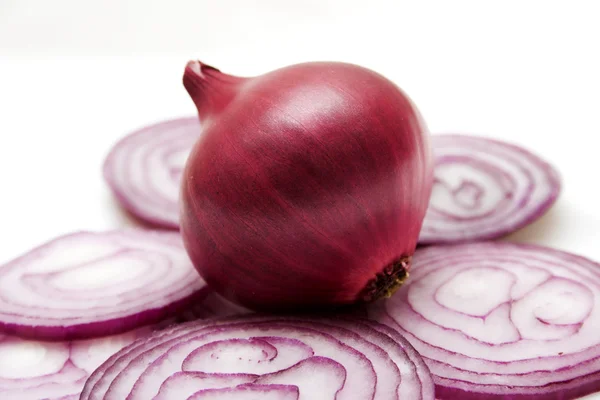
Q1: Are there any side effects of using onions for skin, hair, and eyes?
A: While onions are generally safe, some individuals may experience irritation or allergic reactions. It’s important to do a patch test before using onions on your skin or hair. If you experience any discomfort, discontinue use immediately.
Q2: How often should I use onions for skin, hair, and eyes?
A: You can use onions for skin, hair, and eyes as often as you like, as long as you don’t experience any side effects. However, consistency is key for optimal results.
Remember, while onions offer several benefits, they are not a magic bullet for improving skin, hair, and eye health. It’s important to maintain a healthy lifestyle and consult a healthcare professional for any concerns.
Additional Resources
- National Center for Biotechnology Information. “Quercetin.” PubChem, U.S. National Library of Medicine, pubchem.ncbi.nlm.nih.gov/compound/Quercetin
- American Academy of Dermatology. “Acne & Rosacea.” American Academy of Dermatology, aad.org/public/diseases/acne-and-rosacea/acne
- Linus Pauling Institute. “Vitamin C.” Oregon State University, lpi.oregonstate.edu/mic/vitamins/vitamin-c
- National Institutes of Health. “Sulfur.” MedlinePlus, medlineplus.gov/sulfur.html
- Mayo Clinic. “Hair loss.” Mayo Clinic, mayoclinic.org/diseases-conditions/hair-loss/symptoms-causes/syc-20362436
- American Academy of Dermatology. “Dandruff.” American Academy of Dermatology, aad.org/public/diseases/hair-and-scalp-problems/dandruff
- National Institutes of Health. “Vitamin A.” MedlinePlus, medlineplus.gov/vitamina.html
- National Eye Institute. “Cataracts.” National Institutes of Health, nei.nih.gov/health/cataracts/cataracts
- American Academy of Ophthalmology. “Macular Degeneration.” aao.org/eye-health/diseases/amd
Note: This article is written based on scientific evidence found by the soundhealthandlastingwealth.com team. Sources are duly referenced.
